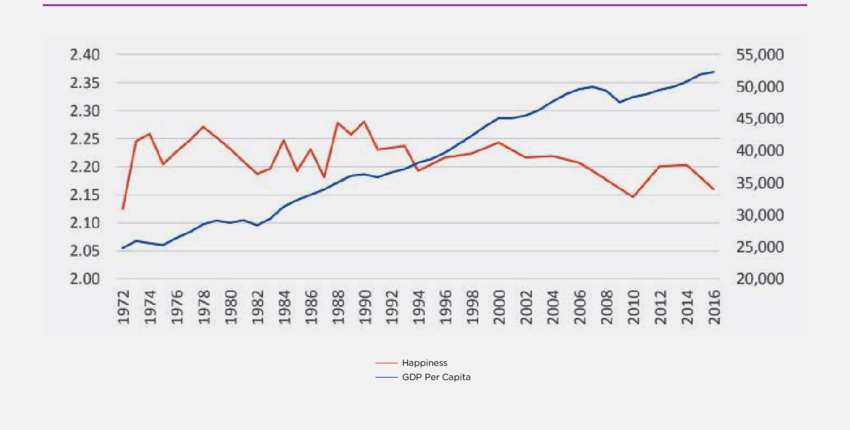John Maynard Keynes Predicted Most of us would only Work 15hrs a Week
In his essay, “Economic Possibilities for our Grandchildren”, written in 1930, Keynes predicted that in a hundred years (or by 2030), people would only need to work about 15 hours a week. He predicted the economy would grow nearly 8-fold by that time. It turns out his prediction for economic growth was correct but obviously we are no where close his work week prediction. Where did he go wrong?
Why are we Working Much Longer Hours?
There were 2 things Keynes apparently did not foresee. The first was that women would enter the labor force in large numbers in in the 1960s and 1970s. But, wait, let’s stop and think about that for a second. That means many household became 2 income households instead of one. In that case, we ought to have reached the predicted work week 50 years sooner. As household incomes grew, we should need to work less to meet our needs. So what actually happened?
What actually happened was what social scientists call the phenomena of social comparison but what you and I know better as “Keeping up with the Joneses”. We spent more and more to consume more goods and services. Now, there need not necessarily be anything wrong with this. If say, by keeping up with each other more and having more goods and services available to us we enhanced our well-being and our happiness then perhaps that justifies the consumption and the longer work hours (40hrs or more a week instead of 15hrs a week). But that is not what happened as you can see here:
Happiness is Declining in America
Bottom Line: There is a Better Way
- As John Maynard Keynes said a century ago, people of our time ought to be largely independent of our employers for our income - unfortunately, we are not due to "mindless consumerism".
- Mindless consumerism is the underlying reason leading to the rise of chronic disease for several reasons.
- A. It ties us to dependence on our employers. Unfortunately, modern day employment is a health hazard for most (in part due to the sedentary nature of most jobs).
- B. Overconsumption has led us to engineer out the need for meaningful use of our legs for ambulation.
- C. It has lead to environment changes toxic to our wellbeing. We evolved in and are best suited to natural environments and instead we live in increasingly artificial environments.
- D. Finally, it transforms workers to work with blinders on - instead of working for the product or service and receiving money as a side effect, workers focus on making money and the product or service is instead the side effect. The results (with respect to health) is that food is no longer food but changed to maximize pleasure and extract profit in spite of the toxicity to health.
- Based on the science of wellbeing one can derive the philosophy that once basics needs are met "the best things in life are free" therefore
- Most people can live far below their means without sacrificing happiness AND by investing the rest they can become financially independent of their employers enabling one to be -->
- Healthier. Wealthier. Happier. More engaged. Simply better.

If anything we have become less happy in spite of consistent and significant GDP growth. This graph was taken from the 2018 World Happiness Report. Among the reasons cited for the decline in happiness over the last few decades is the rise of chronic disease among Americans. That rise, as those who have read Health in Flames will know, is due to the very consumerism that has led to increased productivity. In other words, consumerism drives GDP growth. The only problem is we are a people not a machine. We’ve never been interested in increasing productivity for the sake of productivity. Rather we’re interested in our health, our well-being and ultimately our happiness. The data is clear and it’s an indictment of our way of living.
BOTTOM LINE: THERE IS A BETTER WAY!
- As John Maynard Keynes said a century ago, people of our time ought to be largely independent of our employers for our income – unfortunately, due to “mindless consumerism”, we are not.
- Mindless consumerism is the underlying reason leading to the rise of chronic disease for 3 major reasons:
- It ties us to dependence on our employers and modern day employment is a health hazard for most (in part due to the sedentary nature of most jobs).
- It has led to environmental changes toxic to our wellbeing:
- (a). We evolved in and are best suited to natural environments and instead we live in increasingly artificial environments.
- (b). Overconsumption has lead us to engineer out the need for meaningful use of our legs for ambulation.
- Finally, it transforms workers to work with blinders on – instead of working for the product or service and receiving money as a side effect, workers focus on making money and the product or service is instead the side effect. The results (with respect to health) is that “food” is no longer food but changed to maximize pleasure and extract profit in spite of the toxicity to our health.
- Based on the science of wellbeing one can derive the philosophy that once basic needs are met, “The best things in life are free” therefore —>
- Most people can live far below their means without sacrificing happiness AND by investing the rest, they can become financially independent of their employers enabling them to be —>
- Happier. Healthier. Wealthier. More engaged. Simply better.

